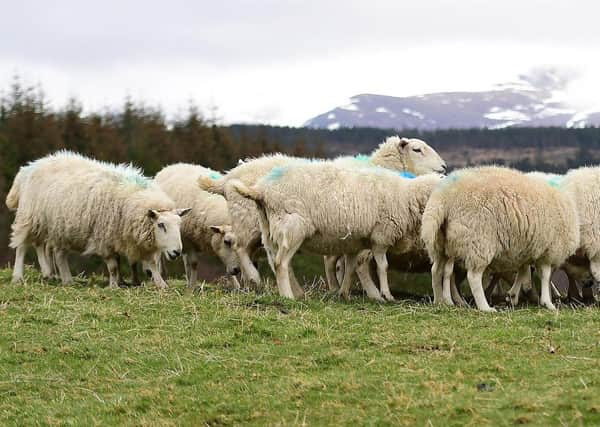Spike in sheep rustling at height of pandemic


There was a spike in reports of livestock - mainly sheep and lambs - being stolen in April, according to provisional data gathered by NFU Mutual.
Farmers also experienced an “influx” of walkers on their land while reports of dog attacks on farm animals rose during the outbreak, the insurer said.
Advertisement
Hide AdAdvertisement
Hide AdIt also warned of fears that rural crime could escalate as the economic impact of the crisis hits.
Another “major concern” is the theft of tractor GPS equipment typically costing between £8,000 and £10,000, NFU Mutual said, adding that this had become “a highly prized item on the shopping lists of rural thieves, particularly during the Covid-19 lockdown where smaller, high-value items appear to have been targeted to meet demand overseas”.
The news comes as the company published an annual report indicating the cost of rural crime rose almost 9 per cent in 12 months to £54 million last year - its highest level for eight years.
Last year, rural crime rose in every region and nation in the UK as criminal gangs targeted expensive tractors, quad bikes and large numbers of livestock, research based on the number of theft claims made to the company suggest.
The biggest percentage increase was seen in Scotland (44 per cent), although its rural crime cost remains below the UK average.
The second-highest regional rise was 18 per cent in Northern Ireland followed by the East of England (16.9 per cent).
The lowest regional increase was in North East England which was up 0.4 per cent, the NFU Mutual report said.
Demand for expensive farm kit overseas was also fuelling the rise, the report said, adding that a joint operation by the company and the National Vehicle Crime Intelligence Service, recovered five vehicles totalling more than £100,000 in Poland earlier this year.
Advertisement
Hide AdAdvertisement
Hide AdThe cost of livestock theft also rose 9 per cent last year to £3 million, according to the findings.
The report said: “Well-organised gangs taking large numbers of sheep, which are thought to enter the food chain illegally, are driving the increase.
“A spate of sheep being slaughtered and butchered in farmers’ fields also contributed to the rise.”
Rebecca Davidson, from NFU Mutual, said that as well as the financial cost the crimes have a “serious effect on the mental well-being of people living in rural and often isolated areas”.